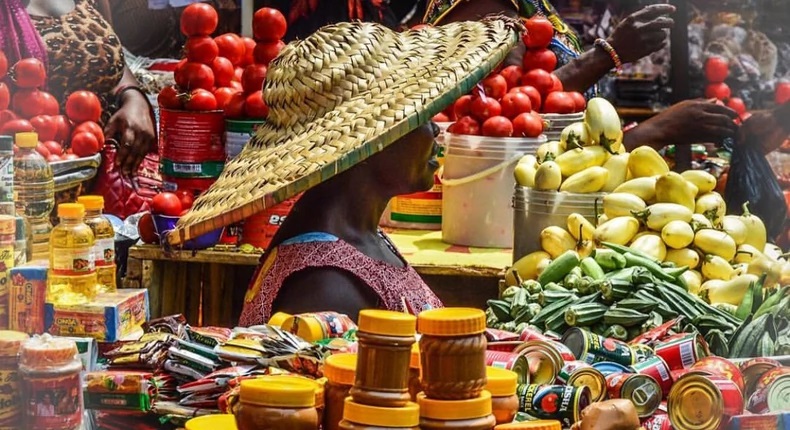Food Inflation in Ghana averaged 9.79 percent from 2013 until 2022, reaching an all-time high of 36.80 percent in September of 2022 which tends to increase due to factors affecting the price index and the depreciation of the cedi.
Prices of foodstuffs and products have significantly increased at some market centers across the region, attributed mainly to the hike in fuel prices as a result of the dollar rate, a market survey conducted by the sompaonline has found.
Eric Murphy reports from Adum and Kejetia markets in the Kumasi Metropolitan Assembly that traders have blamed the situation on the increased cost of transport and the depreciation of the cedi against the dollar, adding that the hike in fuel prices had also triggered increases in basic consumables and goods.
At the Racecourse, a sack of onions which the traders said used to be sold at GH¢500.00 about two months ago is now sold between GH¢650.00 and GH¢700.00 while a bag of maize currently goes for GH¢800, double the price last year at GH¢400.
A five-liter gallon of palm oil which used to be GH¢85.00 has now been priced at GH¢1100.00 and a crate of eggs which was sold at GH¢20 or GH¢22 depending on the size of the eggs was now being sold between GH¢32.00 and GH¢35.00.
The sompaonline observed that a medium-sized bucket full of garden eggs was being sold at GH¢80.00 instead of the GH¢40.00 which was being charged for the same quantity of garden eggs about six weeks ago, while a tuber of yam which went for GH¢10.00 now sells at GH¢15.00.
The traders and some buyers appealed to authorities to implement policies to reduce the rate at which prices of goods and services kept increasing by the day.
Auntie Evelyn of Mama Rasta enterprise who trades in underwear at the Adum said though there was a supply of the undies all the time, the price kept increasing, adding that she bought a curtain of Teresina boxers for GH¢3700.00 instead of GH¢2500.00 "But when I went for another consignment on Monday, I bought each dozen for GH¢400.00, even though prices of some major food items had increased, this current increment is because of the depreciation of the cedi against the dollar," she said.
The buyers lamented that times were hard and fending for their families had become difficult due to how prices of goods and services keep shooting up.
Mr. Godfred, a sponge seller, lamented that any time he visited the market to restock sponges and towels; he was faced with new prices which he described as quite disturbing.
He emphasized that medium size of sponge currently sells at GH¢15 instead of GH¢12, while large ones run at GH¢26 instead of GH¢20.
Random report on tuber of yam at the Adum, Adehyeman, Dr. Mensah, Tafo, and Kejetia markets, the Kumasi Central Business District now has increased in twofold from GH₵10 last year to GH₵20
Beans sold for GH₵6 now go for GH₵10 depending on the size of the cup, groundnut GH₵8 and above, gari at GH₵5 and above while an "olonka" of maize, which last year was GH₵7 now sells at GH₵20 and beyond.
Five sizeable tubers of cassava sell at GH₵20 and upwards, five fingers of plantain sell at GH₵50 and beyond as against GH₵30 last year, six pieces of okro sell at GH₵5 and beyond while oil sells at GH₵100.00 per gallon and beyond depending on the size.
Credit: Eric Murphy Asare













 Sompaonline.com offers its reading audience with a comprehensive online source for up-to-the-minute news about politics, business, entertainment and other issues in Ghana
Sompaonline.com offers its reading audience with a comprehensive online source for up-to-the-minute news about politics, business, entertainment and other issues in Ghana